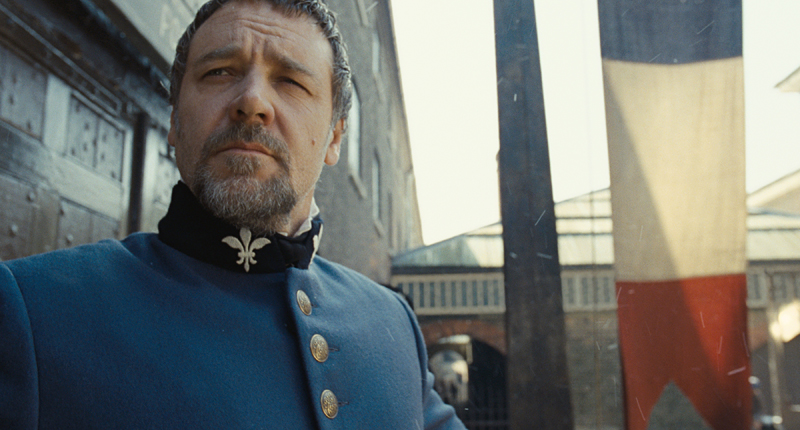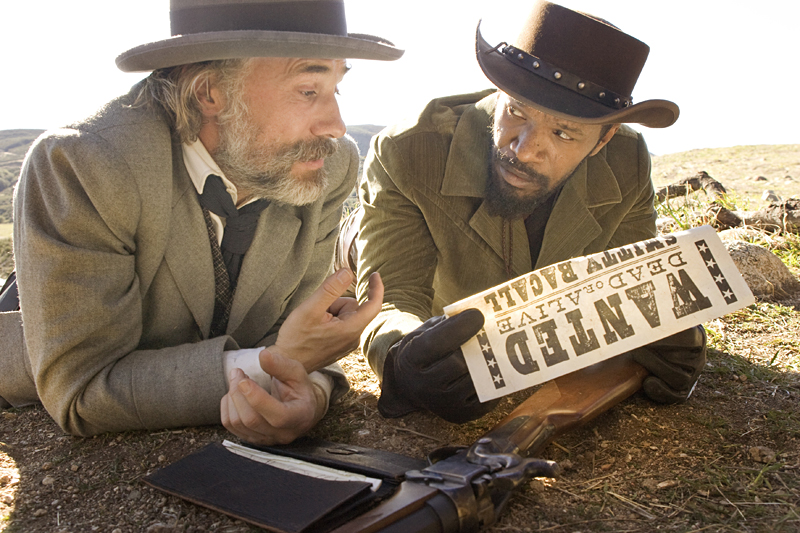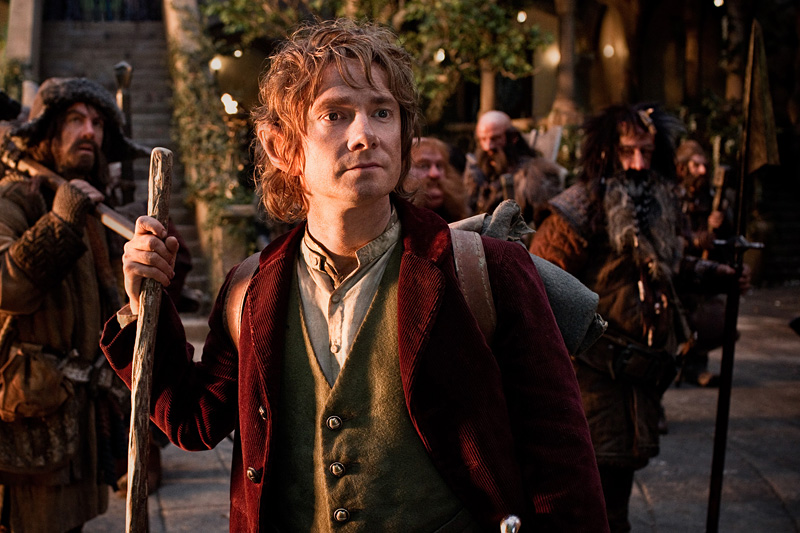The Curious Case of Benjamin Button is certainly curious—a modest F. Scott Fitzgerald story, about a man born in the twilight of life and gradually regressing towards dawn, that has been adapted into a two-ton, Oscar-season white elephant. Directed by David Fincher from a screenplay by Eric Roth, Benjamin Button opens with a prosthetically aged Cate Blanchett dying in a hospital bed. Daisy asks her daughter (Julia Ormond) to read to her from a diary—the contents of which play out as decades-spanning flashbacks.
So we return to New Orleans, circa 1918, where the merriment attending the end of World War I is interrupted by the arrival of a baby boy who emerges from the womb looking like a midget Methuselah. His mother having died during the birth, his father terrified by the sight of him, the strange infant is swiftly deposited on the doorstep of an old-folks’ home. There, the childless, gold-hearted Negro proprietress (Taraji P. Henson) christens the boy Benjamin and opts to raise him as her own.
We’re already a long way from Fitzgerald’s original story, but Roth and Fincher have considerably different aims. Closer in spirit to the Roth-scripted Forrest Gump, Benjamin Button is to the first half of the 20th century what Gump was to the second—a panorama of the American experience as seen from the perspective of a wide-eyed Candide.
Again Roth reduces our complex times to a parade of shockingly straight-faced kitsch: A hellfire-and-brimstone tent revivalist imbues Benjamin with the holy spirit; a pygmy Lothario serves as his introduction to the outside world; a drunken Irish tugboat captain shows him how to be a man. But where Gump actively trivialized history, Benjamin Button effectively ignores it: Although Benjamin briefly exchanges fire with a German submarine during World War II and Hurricane Katrina makes a cameo towards the end, this movie about a white baby raised by a black mother never so much as once addresses race.
The strived-for atmosphere is whimsical and picaresque, the results—save for Benjamin’s brief dalliance with the coolly amused wife (Tilda Swinton) of a British spy in Murmansk—mostly tedious. Very little in the film’s first half invites us in or gives inner life to the characters, leaving only the admittedly fascinating spectacle of seeing Pitt’s computer-aged face digitally grafted onto the several pint-sized performers who help to embody Benjamin over the first two decades of his existence. From a technological standpoint, this is rivaled only by the later “reverse aging” effects that convincingly restore Pitt to his Thelma & Louise–era visage.
The movie finally gives off a spark or two at exactly the midpoint, when Benjamin is reunited with ballet dancer Daisy (Blanchett is reverse-aged herself to resemble a 20-something ingenue), whom he loved from afar as a boy but now can see socially without causing a scandal. The trajectory is obvious, although Pitt and Blanchett surrender themselves to it with reasonable conviction: She’s getting older while he’s getting younger. Eventually they’ll meet in the middle somewhere, but that too cannot last.
Yet unlike Fitzgerald’s Button, whose adolescence and eventual infancy bring with them a series of public and private humiliations, this Benjamin enters his second senescence in relative comfort, attended to by the ever-loyal Daisy and the oppressively emotive stirrings of composer Alexandre Desplat’s score. No bed-wetting is ever shown.
Oddly, in a movie so concerned with the preciousness of time, it takes the better part of three hours to deliver a kernel of folk wisdom—no matter what age you are, into every life some heartache must fall—that a very similar Steven Spielberg–directed segment of 1983’s Twilight Zone: The Movie dispensed in only 30 minutes. To paraphrase Gump: Mamma always said life is like a ticking clock—you never know when it’s gonna stop. You dig?
It was just last year that Fincher delivered a great film, also three hours, on the subject of time. But while in Zodiac the passing years wrap around the characters like a vise, catching them up obsessively in a single distended moment, in Benjamin Button the ravages of time are trumped by a kind of eternal, undying love that mere physics is at a loss to contain. It’s metaphysical Harlequin-romance hokum that, for Benjamin Button to succeed on its own terms, shouldn’t leave a dry eye in the house. Yet when the lights came up, mine were like sandpaper.
Mostly the film is an orgy of excess, in which Fincher, armed with a huge budget, some of the best technicians in the business, and every available brush in the digital paintbox, indulges his passion for luxuriant image-making. “All I have is my story,” Benjamin tells us in voiceover early in the film. But some stories aren’t worth telling in the first place. Life, after all, is too short.








